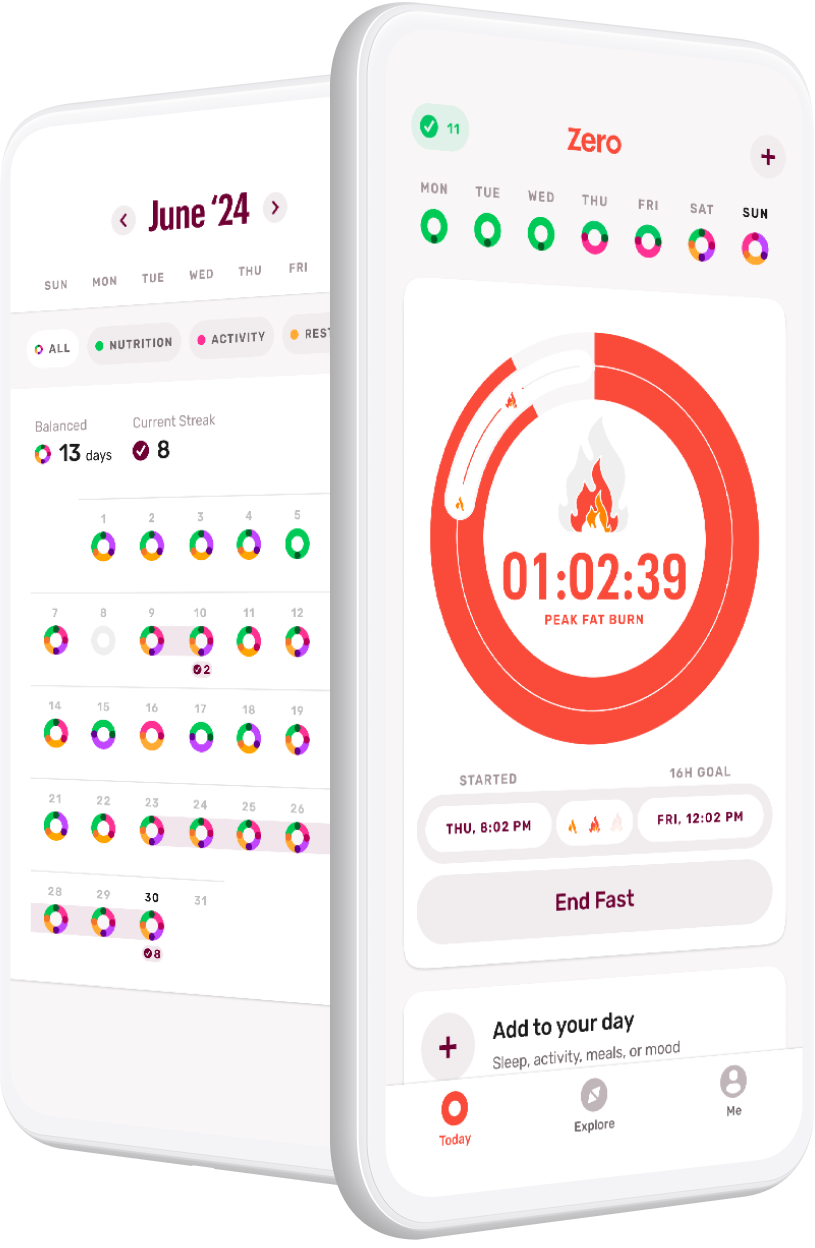There was a time in my life when I was sure I’d found the solution to obesity.
After years of dieting, I’d just started fasting and eating a ketogenic diet when I learned of the carb-insulin model. Developed by Harvard nutrition professor Dr. David Ludwig, this model essentially says that obesity doesn’t come from eating too many calories; it comes from eating too many carbs, which leads to developing insulin resistance and causes the body to store carbs as fat rather than burning them for energy.
This concept perfectly reflected what I was experiencing. Calorie-restriction diets never worked for me, but now that I was cutting carbs, the weight was melting off. I was thrilled with this finding and couldn’t stop talking about it. Everyone needed to hear about the carb-insulin model, because here it finally was: the truth about how our bodies work.
If only bodies were so simple.
If It’s Too Simple, It’s Probably Incomplete
By the time I started my CEO role at Zero, my deep dive into the carb-insulin model had started to surface some counter-evidence. This model, it turned out, was just a theory; it was still being debated in the literature.
When I finally sat down with our science writer Rich LaFountain, PhD, he put it to me like this: The carb-insulin theory, which emphasizes the importance of “what” you’re eating (or not eating; in this case, carbs), is meant to oppose the calories-in calories-out theory, which leans heavily into “how much” you’re eating. However, numerous studies demonstrate that both methods will lead to equivalent weight loss… in the short term. When researchers follow people beyond 6–12 months, it doesn’t matter which weight loss method they use — most people gain the weight back.
In the end, both theories are just too simplistic. The human body is fantastically complex.
All Hope Is Not Lost
While the jury is still out when it comes to singular, science-backed answers, I want to encourage you to investigate. Be curious. There might not be any guarantees or one-size-fits-all solutions when it comes to metabolic health, but if you look hard enough, there are common denominators. Eating whole foods, getting enough sleep, and moving your body regularly are hallmarks of every health routine across time, geography, and cultures. There are many healthy habits you can choose from; you just have to find what’s right for you.
We Want You to Learn You
One of Zero’s most unique qualities, I think, is the priority we place on creating an environment of learning for our members. We employ science experts to stay abreast of and share the latest developments in human metabolism. We’ve designed an experience that helps you connect common denominators of health across multiple health habits. And we’ve done this all to enable you to discover how your body functions best.
We believe that when you understand how different habits influence your health, you’ll feel empowered to find what works for you and motivated to stick with it. Our goal is to help you learn how your body is working — to the extent that science knows! — and to develop routines that help it work even better. (And then, of course, to make those routines fun and motivating! Hence our recent introduction of Streaks.)
As always, I hope you’ll share what you’re learning and also any questions you have about Zero, metabolism, or health and longevity. We try our best to anticipate your questions, but the more you share, the more we can tailor our content to exactly what you want to know.
- Tom’s September Update - September 25, 2024
- Tom’s July Update - July 8, 2024
- Tom’s June Update - June 11, 2024

